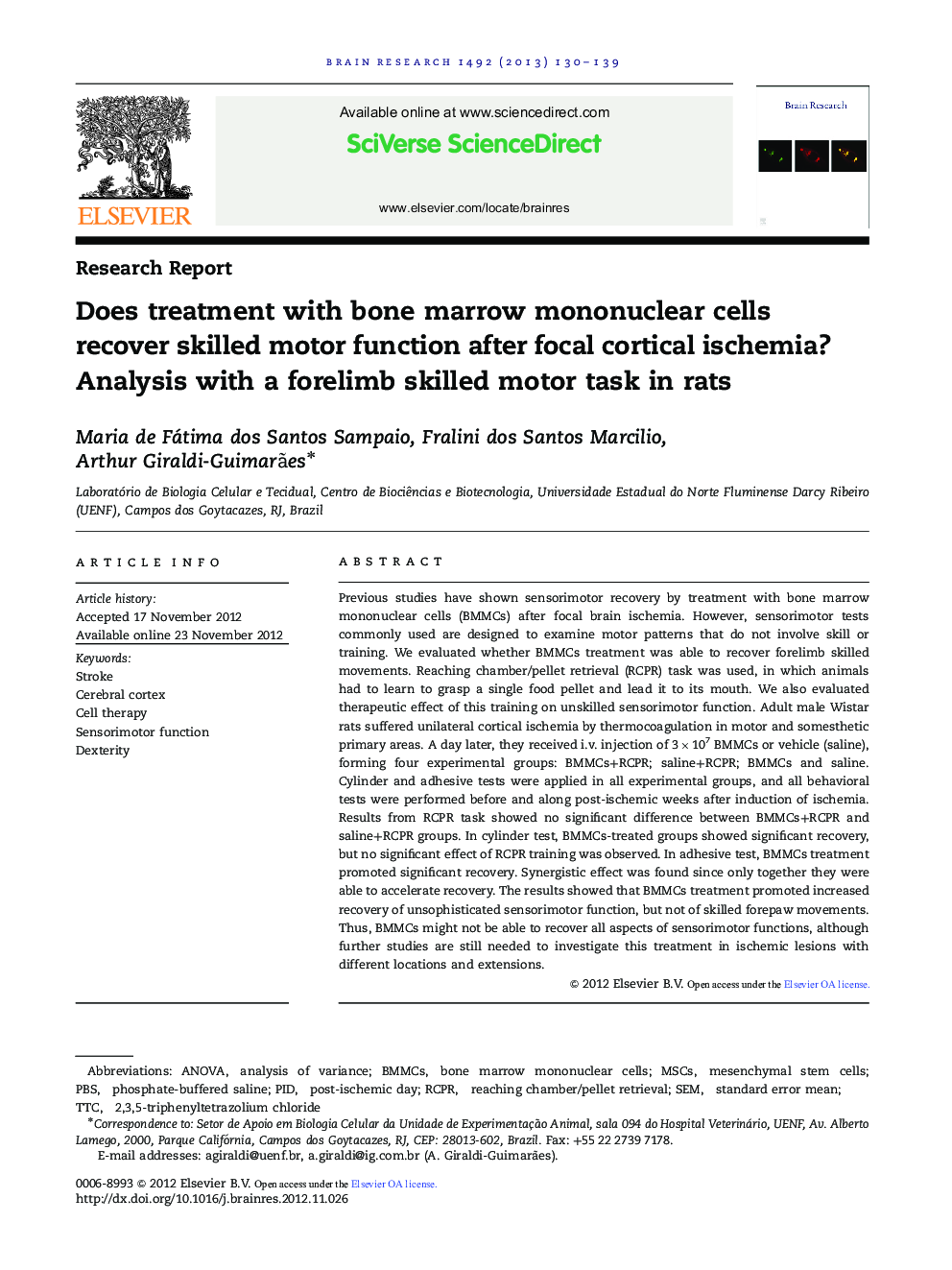| Article ID | Journal | Published Year | Pages | File Type |
|---|---|---|---|---|
| 6263993 | Brain Research | 2013 | 10 Pages |
Previous studies have shown sensorimotor recovery by treatment with bone marrow mononuclear cells (BMMCs) after focal brain ischemia. However, sensorimotor tests commonly used are designed to examine motor patterns that do not involve skill or training. We evaluated whether BMMCs treatment was able to recover forelimb skilled movements. Reaching chamber/pellet retrieval (RCPR) task was used, in which animals had to learn to grasp a single food pellet and lead it to its mouth. We also evaluated therapeutic effect of this training on unskilled sensorimotor function. Adult male Wistar rats suffered unilateral cortical ischemia by thermocoagulation in motor and somesthetic primary areas. A day later, they received i.v. injection of 3Ã107 BMMCs or vehicle (saline), forming four experimental groups: BMMCs+RCPR; saline+RCPR; BMMCs and saline. Cylinder and adhesive tests were applied in all experimental groups, and all behavioral tests were performed before and along post-ischemic weeks after induction of ischemia. Results from RCPR task showed no significant difference between BMMCs+RCPR and saline+RCPR groups. In cylinder test, BMMCs-treated groups showed significant recovery, but no significant effect of RCPR training was observed. In adhesive test, BMMCs treatment promoted significant recovery. Synergistic effect was found since only together they were able to accelerate recovery. The results showed that BMMCs treatment promoted increased recovery of unsophisticated sensorimotor function, but not of skilled forepaw movements. Thus, BMMCs might not be able to recover all aspects of sensorimotor functions, although further studies are still needed to investigate this treatment in ischemic lesions with different locations and extensions.
⺠Recovery of skilled movement by BMMCs was evaluated after focal cortical ischemia. ⺠BMMCs were unable to increase recovery of forepaw skilled movement. ⺠BMMCs and skilled training had a synergistic effect in sensorimotor recovery. ⺠BMMCs might be unable to recover skilled movements. ⺠Further studies varying location and extension of cortical lesion are needed.
